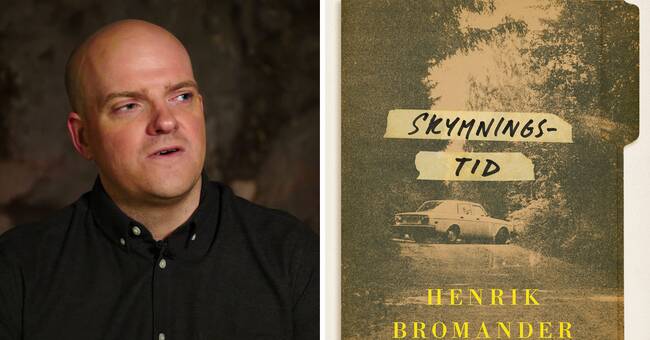Twilight takes place in the 70s and is about underground cells in the middle of the welfare society.
Major Gunnar secretly forms his own, paramilitary resistance movement together with three hand-picked companions.
The group prepares to resist a Russian invasion by practicing and prepping in a cabin far out in the woods.
They are part of the mythical Stay-behind movement - a network of paramilitary groups in Western Europe, active during the Cold War.
- In the beginning, it is a very enjoyable life for them when they have fixed everything and are just waiting for the big day to come, says Henrik Bromander and continues:
- But there is more and more control.
They can not content themselves with preparing, but they want to put a stop to things in their environment even before it is too late.
Research and secret information
Henrik Bromander has many strings on his lyre and has also made a name for himself as a cartoonist.
He describes himself as a nerd when it comes to the underworld of the 70s and 80s and crises linked to the Swedish intelligence service.
After thousands of pages of research and unearthed, secret information and interviews with key people, he has tried to get as close to reality as possible.
One of the driving forces has been to write about people who cross borders and then are forced to live with what they have done.
But also to learn as much as possible.
- I could almost be content with just doing the research, for me it is almost the most fun, he says.
Bunker trend
He is not the only author who writes about what happens to people who choose to go underground.
In both Joel Wallón's Rovdrift (2020) and Stina Jackson's Ödesmark (2020), the main characters have isolated themselves in cottages in the forest, far away from ordinary society, where fear and imagination can run free.
Henrik Bromander says that he is no stranger to the idea of stockpiling food, buying water bottles and gas kitchens.
- I think I share the concern about climate and societal collapse with many.
Somehow we may have to prepare, preferably together.
But many probably do it in their house instead, he says.

